Berlin’s queer and trans history is a captivating narrative of resilience, celebration, and struggle. This augmented reality tour takes participants on an illuminating journey through the city’s vibrant LGBTQIA+ legacy, from the thriving lesbian subculture of the 1920s to the heartbreaking persecution faced during the Nazi regime. The tour’s interactive elements seamlessly blend historical accounts with modern technology, offering a multisensory exploration of this pivotal heritage. Delving into the impact of the AIDS crisis and the ongoing fight for equality, the tour promises an intimate and informative experience that challenges preconceptions and inspires deeper reflection on the LGBTQIA+ community’s unwavering resilience.
Key Points
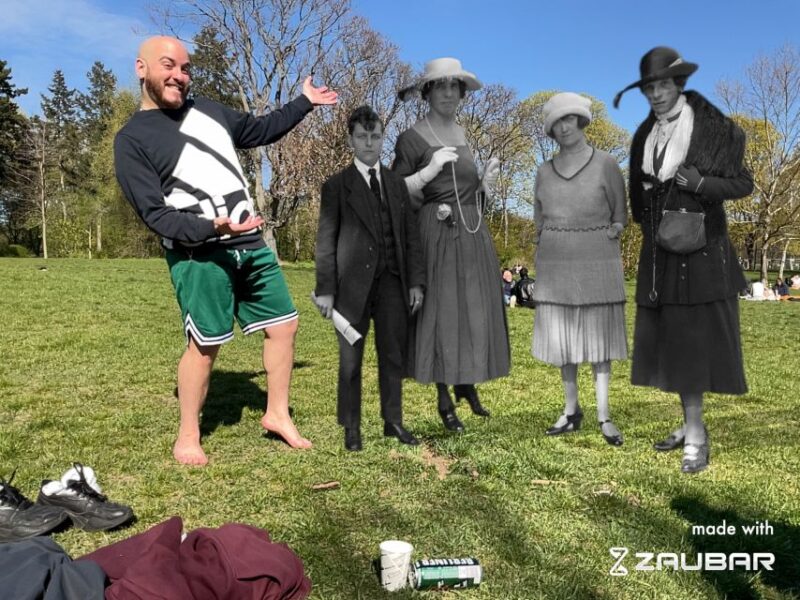
- The tour offers an interactive, AR-enhanced exploration of Berlin’s rich LGBTQIA+ history, from pioneering activists to the vibrant 1920s lesbian subculture.
- Participants can learn about the impact of the AIDS crisis and the role of the Berlin Wall in LGBTQIA+ activism.
- The tour highlights significant historical locations, including the former site of Hirschfeld’s Institute for Sexual Science and the hub of queer culture, Nollendorfplatz.
- The tour experience combines guided commentary with digital elements like historical overlays and interactive quizzes to deepen understanding of Berlin’s queer and trans heritage.
- The tour is wheelchair accessible, includes free cancellation, and caters to adults aged 18 and above due to the content.
Tour Overview
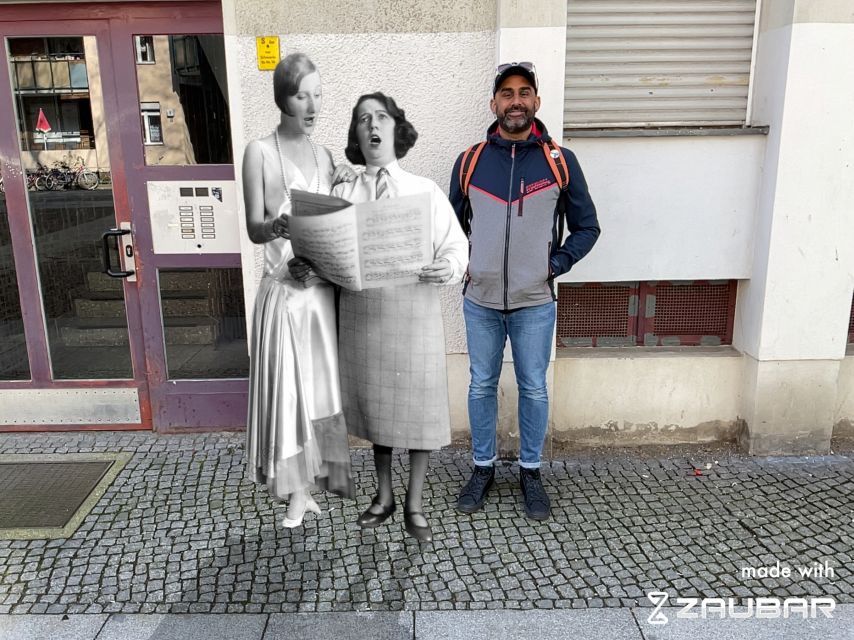
Berlin’s Queer & Trans History – Guided Augmented Reality Tour offers visitors an immersive and educational experience, exploring the city’s rich LGBTQIA+ past.
Priced at $75.15 per person, this 3.5-hour tour is limited to just 10 participants, ensuring an intimate and personalized journey.
Conducted in English, the tour is wheelchair accessible, with a free cancellation policy up to 24 hours in advance.
Guests will meet at Nollendorfplatz, where they’ll embark on an AR-enhanced exploration of significant historical sites, learning about key figures and the impact of 1920s Berlin on the queer and transgender movement.
The tour’s blend of guided commentary and interactive technology provides a unique and engaging way to uncover Berlin’s LGBTQIA+ heritage.
Loving the local insights? Here are more guided experiences we recommend in Berlin
Queer & Trans Identities
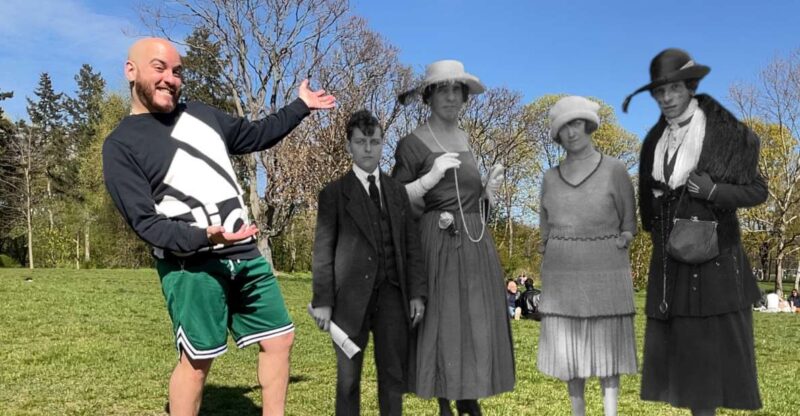
How did Berlin emerge as a pioneer in the development of queer and transgender identities over a century ago?
Karl Heinrich Ulrichs, considered the world’s first advocate for LGBTQIA+ rights, laid the groundwork for contemporary understandings of gender and sexual diversity through his groundbreaking theories on ‘sexual intermediaries’.
Ulrichs’ work, combined with the influential ideas of Magnus Hirschfeld, whose Institute for Sexual Science was a hub for queer and trans activism, cemented Berlin’s reputation as a trailblazer in the LGBTQIA+ movement.
The city’s vibrant lesbian subculture in the 1920s, with icons like Marlene Dietrich and Claire Waldoff, further solidified its status as a beacon of progressive gender and sexual expression.
Vibrant Lesbian Life of 1920s
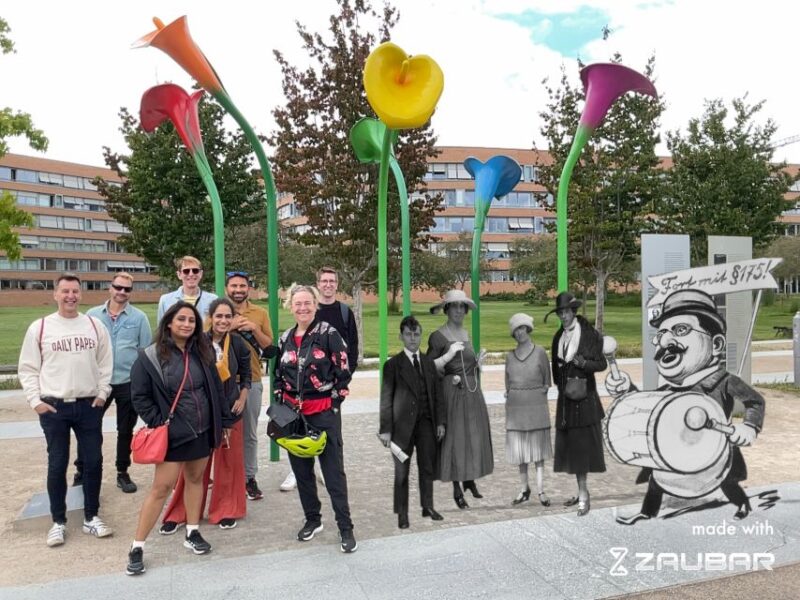
Frequently, the vibrant lesbian subculture of 1920s Berlin centered around iconic figures like cabaret singer Marlene Dietrich and entertainer Claire Waldoff, who helped solidify the city’s reputation as a beacon of progressive gender and sexual expression.
Dietrich’s androgynous fashion sense and on-stage persona challenged traditional gender norms, while Waldoff’s unapologetic celebration of lesbian identity through her music captivated audiences.
These powerful women were part of a thriving queer scene that flourished in the clubs, cabarets, and underground spaces of Weimar-era Berlin, setting the stage for the city’s future as a global hub for LGBTQIA+ rights and visibility.
Nazi Germany’s LGBTQIA+ Persecution
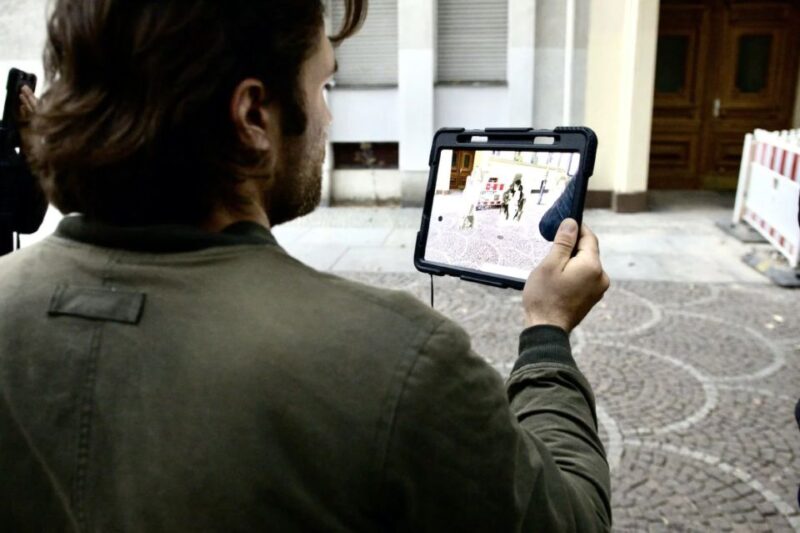
Hitler’s rise to power in the 1930s marked a devastating period of persecution for LGBTQIA+ individuals in Germany, as the Nazi regime moved to criminalize and eliminate queer and transgender identities from society.
Under Hitler’s rule, a series of laws were passed that targeted LGBTQIA+ people, leading to the arrest, imprisonment, and even murder of thousands in concentration camps.
The tour examines this dark chapter, shedding light on the trauma experienced by gay and bisexual men during the AIDS crisis, and the significance of the Berlin Wall in this context.
Participants gain a deeper understanding of the resilience and activism that emerged in the face of such oppression, underscoring the ongoing fight for LGBTQIA+ rights.
More Great Tours NearbyImpact of AIDS Crisis
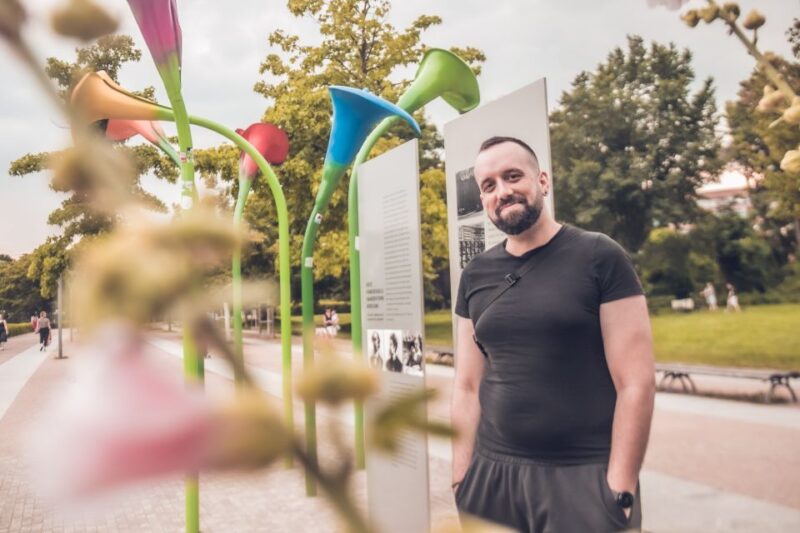
The devastating AIDS crisis that swept through the LGBTQIA+ community in the 1980s and 1990s had a profound impact on Berlin, transforming the city into a hub of activism and resilience.
As gay and bisexual men faced trauma and loss, the SchwuZ nightclub became a focal point for their activism, organizing events and rallies to raise awareness and demand better healthcare.
The fall of the Berlin Wall also played a significant role, allowing for greater cross-border cooperation and the sharing of resources and information.
This period of crisis ultimately galvanized the queer community, strengthening their resolve and paving the way for greater visibility and acceptance in the years to come.
Fascinated by Berlin's past? More historical tours we've covered
Augmented Reality Tour Experience
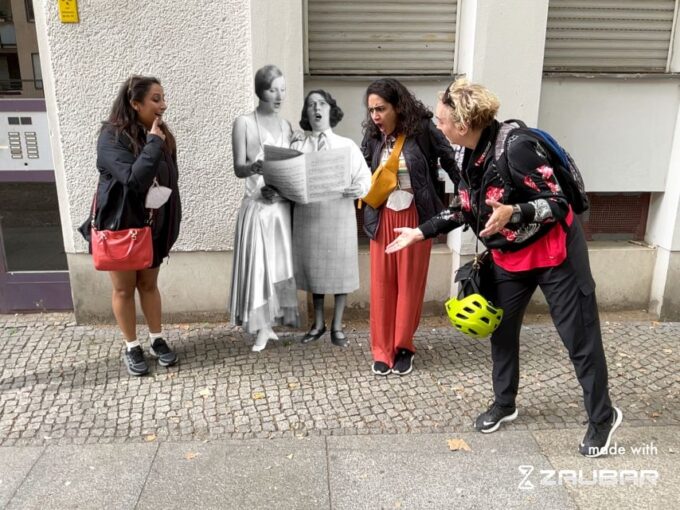
Notably, the tour is enhanced with augmented reality (AR) technology, allowing participants to engage with the history through interactive digital elements displayed on an iPad provided during the experience.
The AR features enable participants to:
-
Overlay historical photos and videos on the modern cityscape, bringing the past vividly to life.
-
Access pop-up information cards that provide context and details about significant sites.
-
Snap AR-enhanced photos at tour stops as personalized souvenirs of the experience.
-
Hear audio narrations and interviews that offer deeper insights into the LGBTQIA+ stories.
-
Participate in quizzes and trivia to test their knowledge of Berlin’s queer and trans history.
This innovative use of technology adds an immersive and multisensory element to the guided tour, enriching participants’ understanding and appreciation of this important historical legacy.
Participant Requirements and Feedback
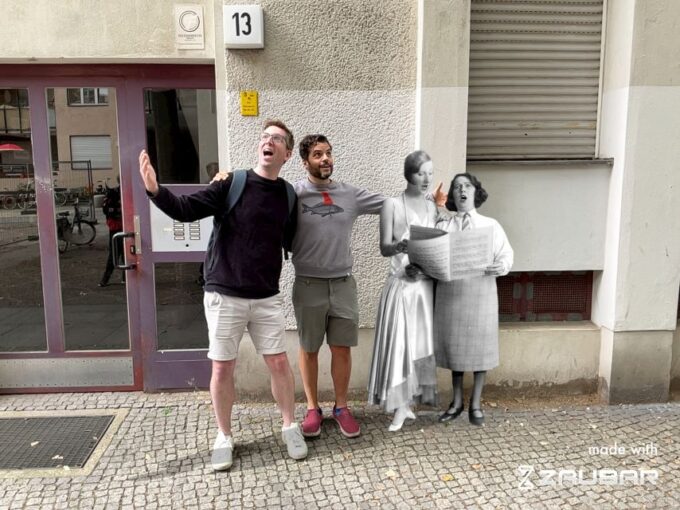
Participants are required to bring comfortable and weather-appropriate clothing, as well as a public transport ticket, for the 3.5-hour Berlin’s Queer & Trans History tour. Tour participants must be 18 years or older, as the content is not suitable for children. The tour has been praised for its informative and interactive nature, with an overall rating of 4.3/5 from customers. Participants have highlighted the tour guide’s inclusivity and passion for LGBTQIA+ history as particular strengths of the experience.
| Participant Feedback | |
|---|---|
| Informative Nature | 4.5/5 |
| Interactive Elements | 4.4/5 |
| Tour Guide Inclusivity | 4.7/5 |
| Overall Rating | 4.3/5 |
| Value for Money | 4.1/5 |
Significant Historical Locations
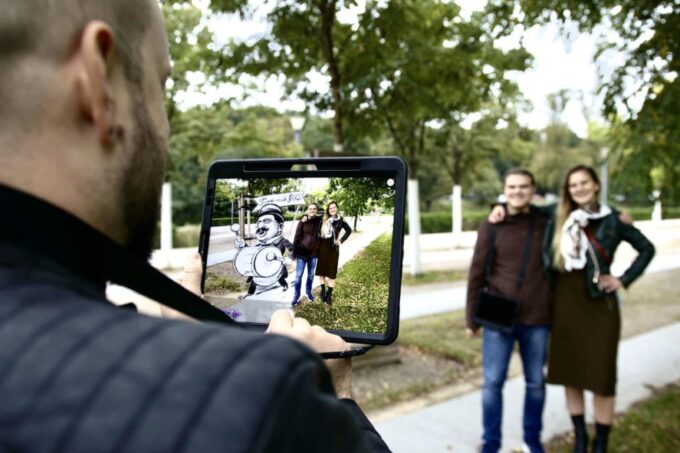
Throughout the Berlin’s Queer & Trans History tour, participants visit several significant locations that shed light on the city’s rich LGBTQIA+ past. These sites include the Magnus-Apotheke, once home to Magnus Hirschfeld’s pioneering Institute for Sexual Science, and the Connection Club, a popular gathering place during the 1920s.
The tour also explores:
-
The Metropol, a famous cabaret that featured groundbreaking LGBTQIA+ performers.
-
Nollendorfplatz, a hub of queer culture and the site of the first-ever gay pride parade in Germany.
-
The site of the former KaDeWe department store, which housed the world’s first gay bookshop in the 1920s.
-
The former location of SchwuZ, a renowned nightclub that served as an activism center during the AIDS crisis.
-
The Berlin Wall, which held symbolic significance in the LGBTQIA+ community’s fight for equality.
Frequently Asked Questions
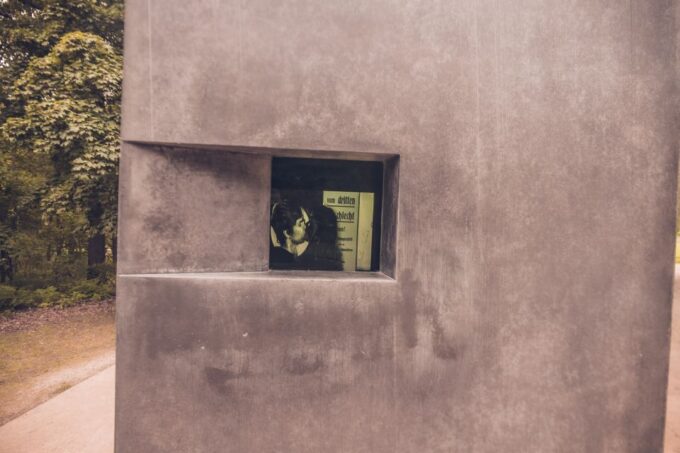
How Accessible Is the Meeting Point for the Tour?
The meeting point for the tour is accessible as it is located in front of Alnatura Super Natur Markt at Nollendorfplatz. The area is wheelchair-friendly and easily reached by public transportation.
Are There Any Discounts for Students or Seniors?
The tour’s website does not mention any specific discounts for students or seniors. However, it’s best to check with the tour operator directly to inquire about any possible discounted rates or special offers they may have available.
Can Participants Take Breaks During the Tour?
Yes, participants can take breaks during the tour. The tour guide is flexible and accommodates participants’ needs, allowing them to rest or step away as necessary throughout the approximately 3.5-hour experience.
Is the Tour Suitable for Non-English Speakers?
The tour is conducted in English, so it may not be suitable for non-English speakers. However, the tour operator can likely provide translation services or recommendations for non-English tours if requested in advance.
What Happens in the Event of Inclement Weather?
In the event of inclement weather, the tour provides umbrellas and suggests participants dress appropriately. The augmented reality elements can still be experienced, and the tour may be adjusted to spend more time indoors if necessary.
Recap
This guided augmented reality tour provides an engaging and informative exploration of Berlin’s rich queer and trans history.
Participants uncover the vibrant LGBTQIA+ culture of the 1920s, the devastating persecution during Nazi Germany, and the ongoing fight for equality.
Through interactive AR elements, the tour enhances the historical experience, offering valuable insights into the resilience and strength of the community.
You can check availability for your dates here:More Guided Tours in Berlin
- Cold War Berlin Behind the Wall Walking Guided Tour
- Berlin Historical Self-Guided Tour of the City in One Walk
- Skip-the-line Boat Cruise and Berlin’s Old Town Guided Tour
- Private Guided Tour of the Fasanenstrasse in Berlin
- Berlin Self Guided Sherlock Holmes Murder Mystery Game
- Witches, Riots and the Cold War: A Self-Guided Tour in Wedding
More Tours in Berlin
More Tour Reviews in Berlin
Not for you? Here's more things to do in Berlin we have recnetly reviewed
- 5 Best Craft Beer Tours And Tastings In Berlin
- 3 Best Shopping Tours In Berlin
- 7 Best Christmas Experiences In Berlin
- 16 Best Dining Experiences In Berlin
- 2 Best 2 Day Tours In Berlin
- 4 Best Lunch Experiences In Berlin
- 2 Best Full-Day Tours In Berlin
- 15 Best Photography Experiences In Berlin
- 12 Best Dinner Tours In Berlin
- 25 Best Cruises And Boat Tours In Berlin
- 25 Best Food Tours In Berlin
- Third Reich Quest Experience in Berlin
